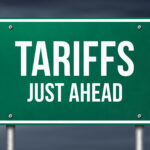How Supply and Demand Affects Stock Prices

Let’s look at how supply and demand affects the price that investors are willing to pay for stocks. As we enter in the days of summer, I have been reminded how much supply and demand truly impacts the way we live. The principles of supply and demand are really the core of how our economy exists. If there is a shortage of something that is desirable, the price people are willing to pay for it will rise. Conversely, if there a large amount of something that no one is really interested in buying that price will fall. We have seen a myriad of examples of supply and demand lately. Remember how much cans of Lysol were selling for on Ebay in April 2020? How often can you sell a used car for more than you purchased it for? Thanks to a worldwide semiconductor chip shortage, auto manufacturers cannot make cars fast enough to keep up with the demand. The housing market is currently experiencing a significant price boom thanks to supply and demand. Post-pandemic moves to suburban neighborhoods combined with low inventory and ultra-favorable mortgage rates has set up a real estate frenzy.
Supply and demand also directly affects the price that investors are willing to pay for stocks. When there are more buyers than sellers for a stock, the price will rise. Conversely, if there is a flood of sellers and low inventory of buyers the price for a stock will fall rapidly. The stock market sentiment is currently in a “buy more at any cost” mentality. There seems to be a never-ending demand to buy more stocks. This is due in part to the Federal Reserve continuing to “hold the market’s hand” through its assurances of continued low rates and QE intervention (when the federal reserve purchases government bonds in order to inject money into the economy to expand economic growth). We have seen a “market mania” these past 12 months as stock market valuations continue to skyrocket well beyond their fundamentals. Market greed levels in many measurements are at all-time highs. Investors insatiable appetite for more has also resulted in previously thought “dead” stocks like Gamestop and AMC soaring well beyond what an expected valuation would be. It really was the perfect example of how supply and demand can snowball when perceived demand is present. Investors believed that the current price of the above stocks would continue to rise, at least temporarily. Therefore, stock prices were driven higher and higher as more people wanted “in”. The only issue is that eventually supply takes over and if the buyers suddenly decide to sell, the run for the exits can be quite dramatic. Remember for every seller, you will need to find a willing buyer who will dictate the price they are willing to buy for.
Supply and demand will always dictate prices in our economy and stock market, even though some cycles play out quite different than expected. The past 15 months have been anything but normal and judging by the current cost for a used Toyota, it looks like we can expect more anomalies at least for the time being.
I would like to take this time to wish you and your family a Happy Independence Day. As always, if you have questions about your current investment plan, you can always give us a call to discuss. We are happy to help.
 Ashley Rosser, President
Ashley Rosser, President
Prior to her career in the financial services industry, Ashley earned her Bachelor of Science in Nursing from Cedarville University.
Ashley decided to make a career change from her ten years within the healthcare industry as a pediatric emergency room nurse to retirement and 401K investment planning. She joined Victory Wealth Partners in 2008 after obtaining her Series 65 professional financial license and went on to earn her AIF (Accredited Investment Fiduciary) professional designation from the Center for Fiduciary Studies.












